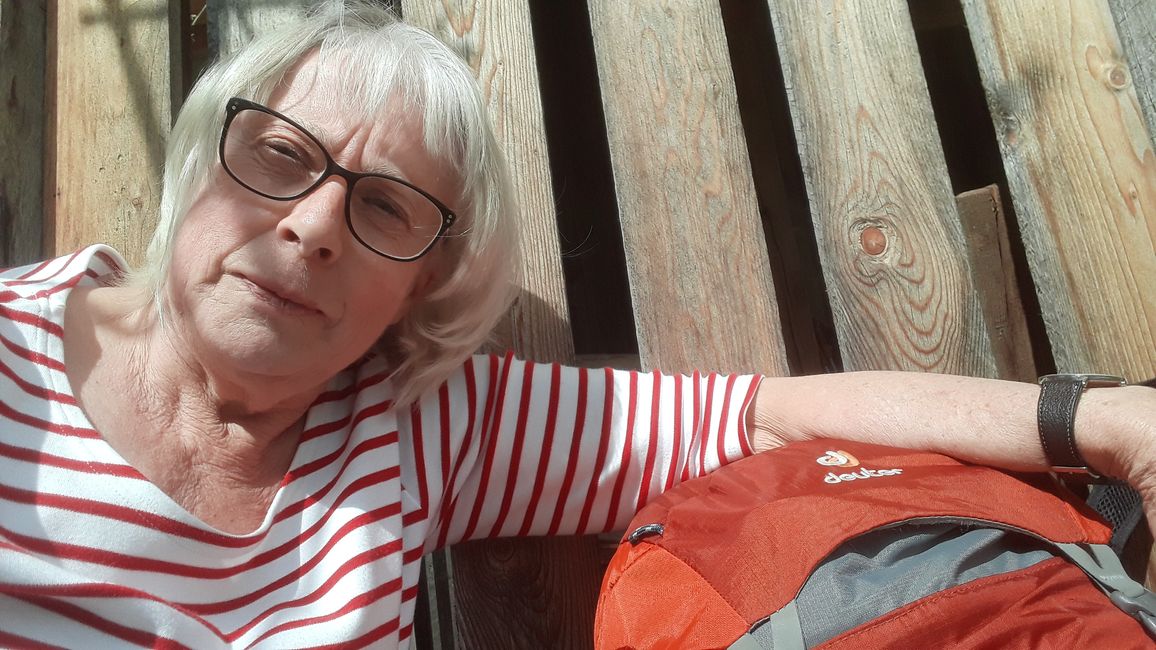Day 16 Assisi: Place of work of Francis and Clare
Argitaratu: 29.04.2024
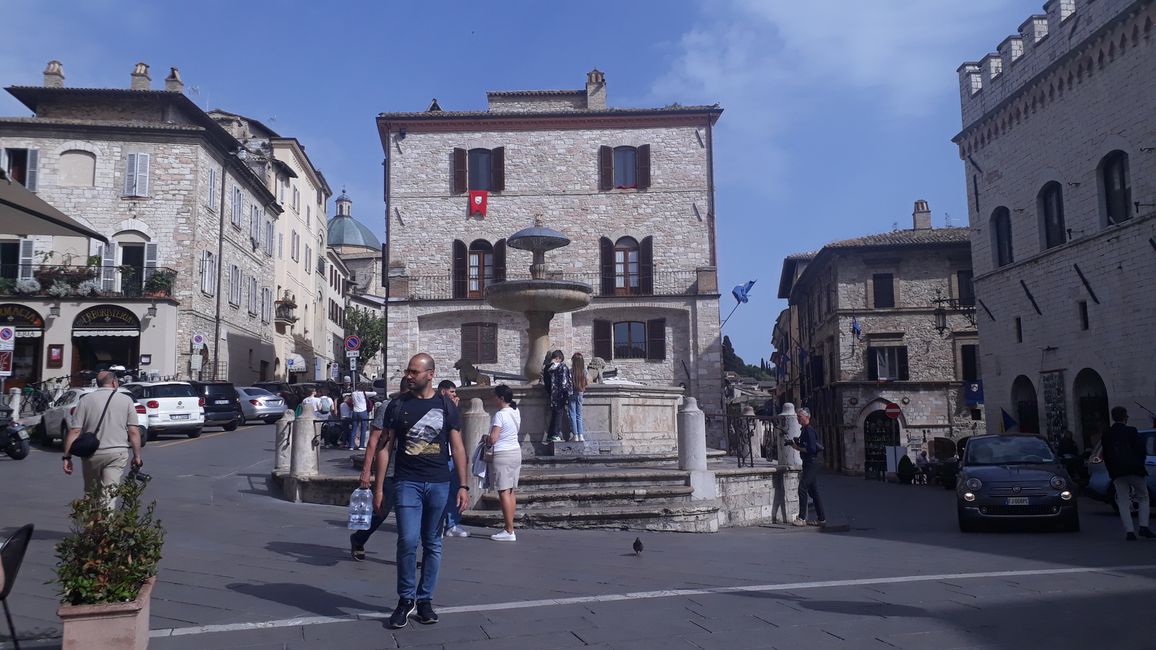
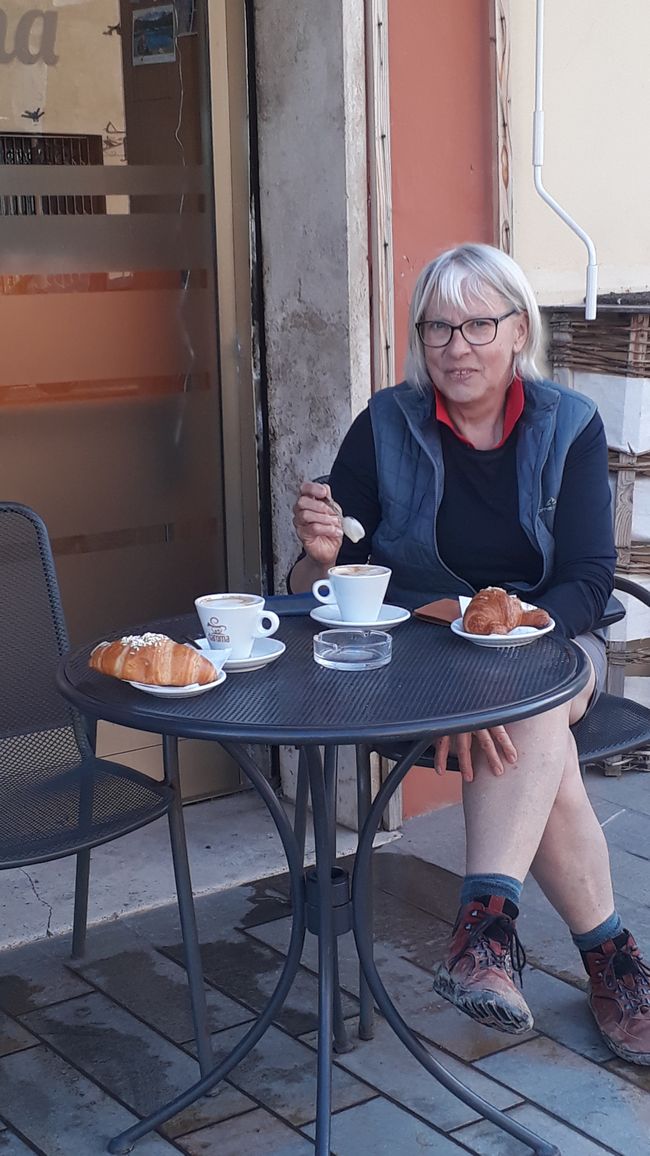
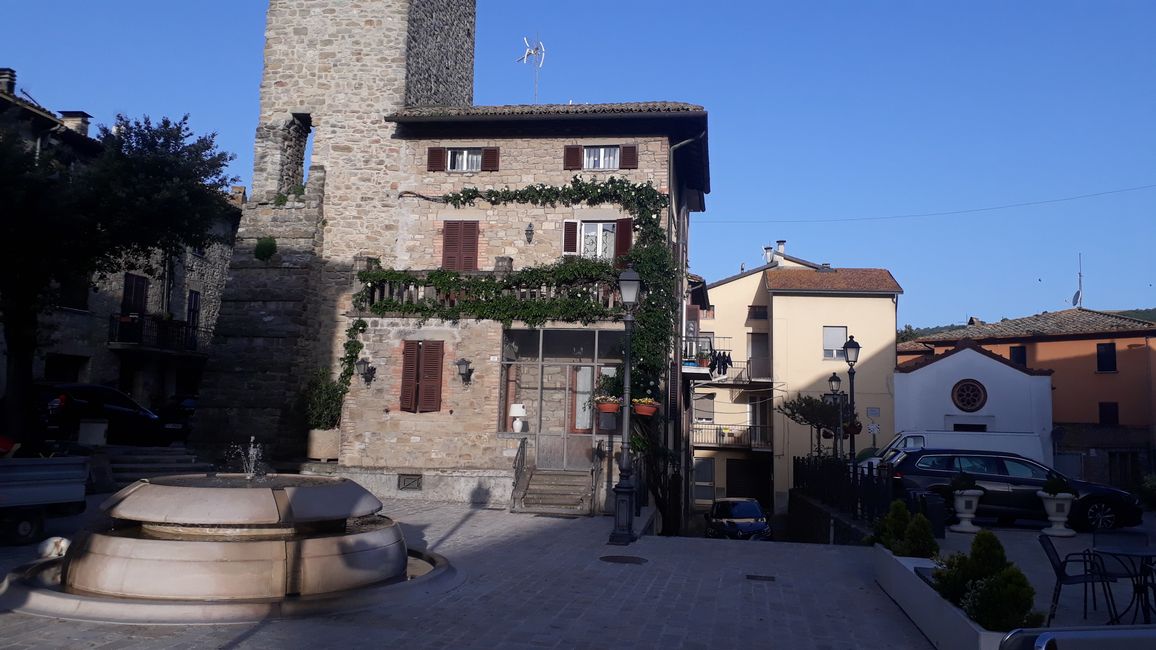
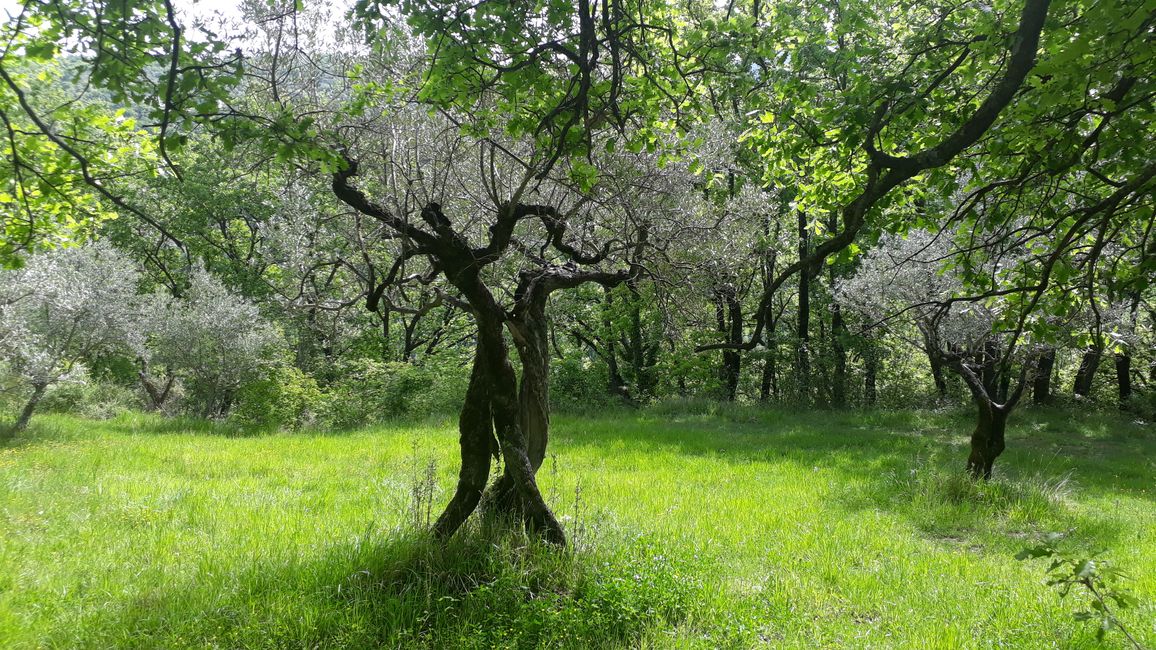
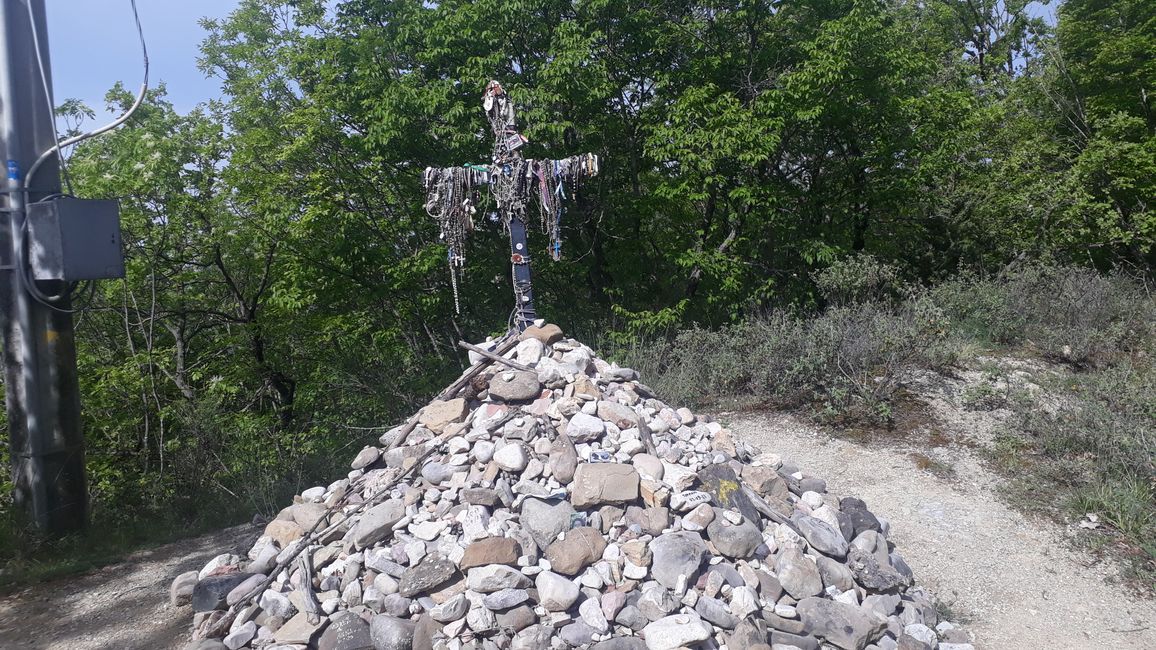
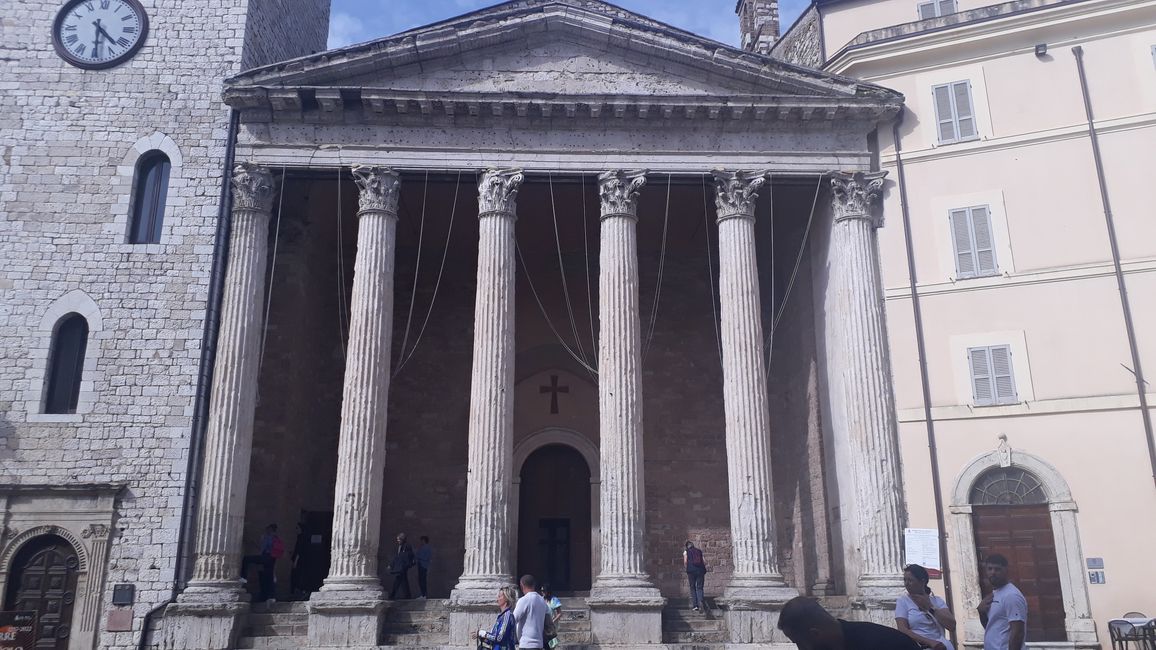
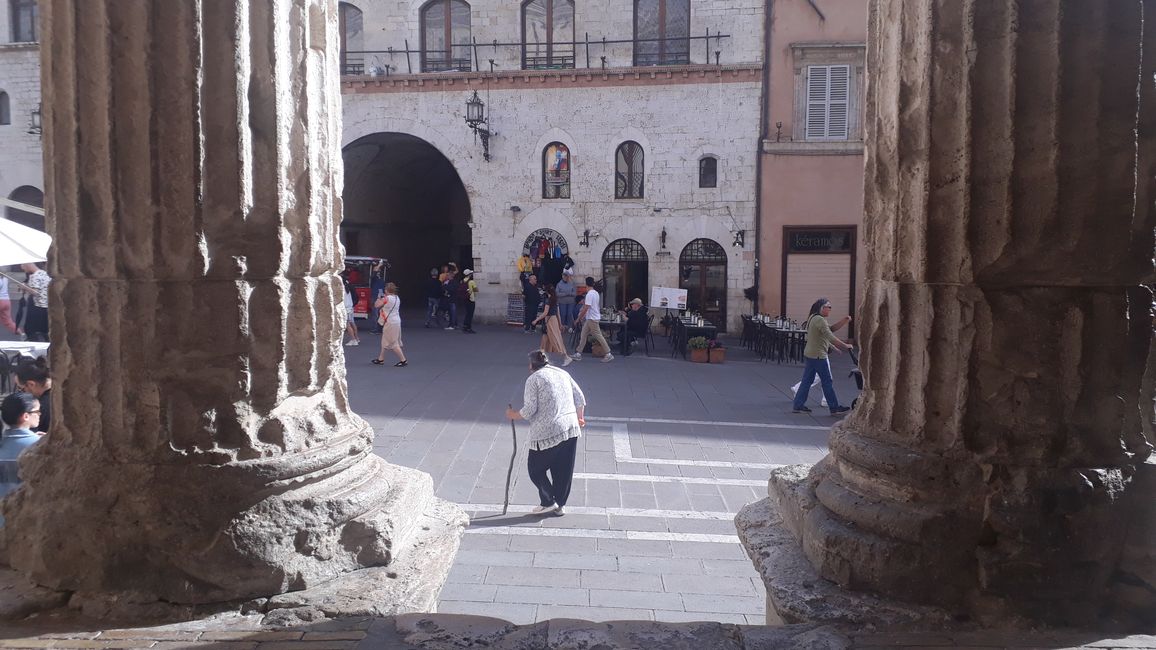
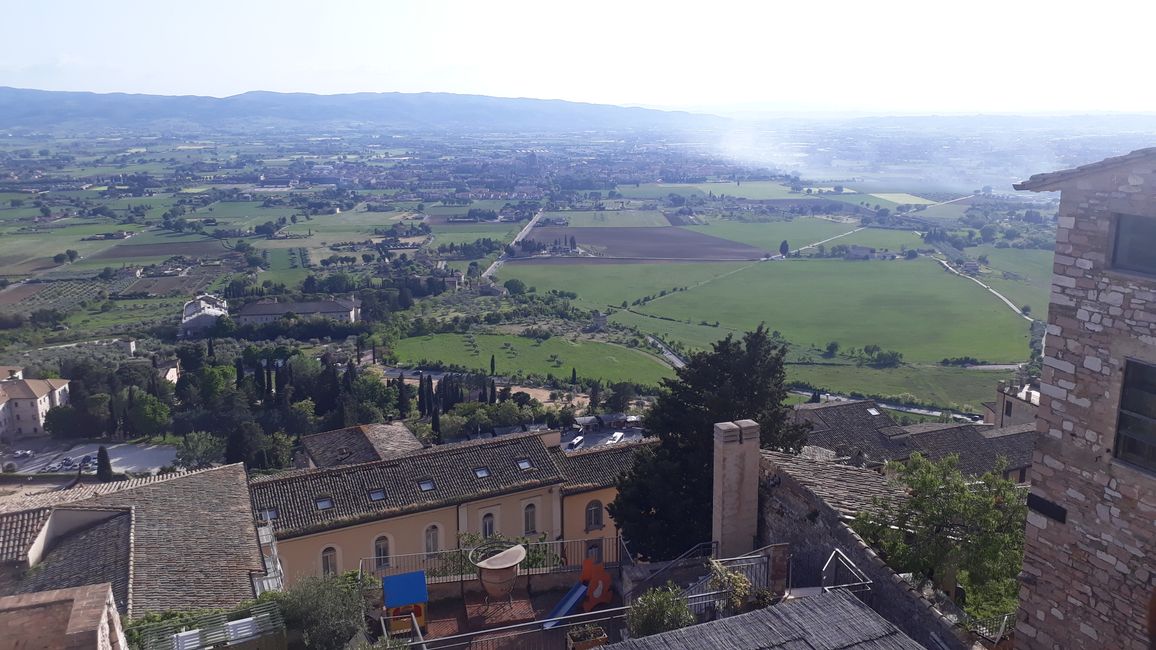
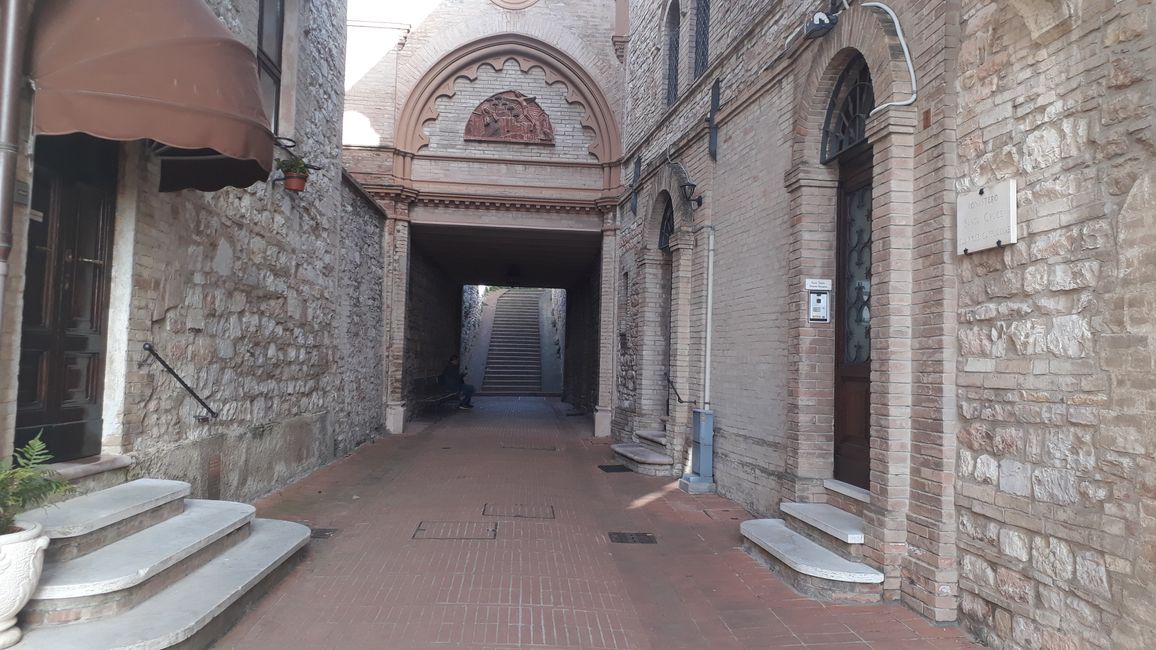
Harpidetu Buletinera
The path from Valfabbrica to Assisi is easy to walk and very varied. In the first few kilometers, the landscape is similar to that of the last few days.
Suddenly the landscape changes: the hills become lower and gentler, vineyards increase and there are more and more rocky walls between the wooded slopes.
Assisi and the Romans
Where Assisi is today, an Umbrian temple once stood before the Romans colonized the plateau on Monte Subasio. The city walls and the Piazza del Comune still bear witness to Roman rule. The city ensemble was declared a World Heritage Site in 2000.
In the Piazza del Comune, an ancient façade catches the eye: it belongs to the church of Santa Maria sopra Minerva. It is the remains of a Roman temple of Minerva.
The columns in the vestibule were never destroyed and were restored by Benedictine monks in the 6th century. In 1539 the temple was converted into a church and a century later it was given a baroque makeover. A rather unusual process, given the "pagan" history.
By the way, Goethe was here before me (a little longer before me, in 1786). He was, like me, enthusiastic and described the building as the first really well-preserved ancient building that he had seen in his life.
Three nights in Assisi
For a long time it was not clear whether I would find an affordable room in Assisi. The city is completely overrun, and not just by pilgrims. I am now staying in a room in the German Poor Clares monastery in Assisi for three nights. I am sharing the room with a young Polish woman who also has no place to stay.
The sisters kindly took us in, even though they are already overworked. And they convinced us that there is a lot to discover here. It would be a shame if we rushed on. So Sylwia and I are now spending more nights in one room, after having already spent a few nights together with other pilgrims in the dormitory.
Convent of the German Poor Clares Capuchins in Assisi
Clare, who was later canonized, followed her contemporary Francis into absolute poverty around 1220. After other women followed this example, Francis founded a women's order, which was initially called the "Damianites". After Clare's death, the order was named after her. The founding of the order was, incidentally, an expression of an intensive religious women's movement.
The Poor Clares today
The first day in the monastery immediately causes me some irritation. I attend morning mass. There is a grille behind the altar. Almost as if with an invisible hand, someone pulls back the curtains and opens two large windows. Behind the grille, you can see the figures of the sisters, but you can't really see them. We on this side of the grille and they on the other side. After the final blessing, the windows are closed again and the curtains are drawn. Later, I ask one of the sisters why someone would voluntarily agree to spend their whole life behind bars and walls. (But later, the thought briefly occurs to me that we might actually be "behind bars".)
There are things that are difficult to understand, and the life of the Poor Clares is one of them. They live completely isolated from public life. This life is meant to enable them to pray without any distraction and with absolute devotion, for the world, for all people, for peace. They do this seven times a day, explained Sister Alexija, who is serving us. May God grant that this selfless effort is not in vain.
Two of the sisters form the gateway to the world in the monastery. They look after the guests and all important contacts. Their main task: to relieve the sisters of worldly matters.
Harpidetu Buletinera
Erantzun (2)
Max
Liebe Maria, ich sehe die große Wanderung ist spannend und schön weitergegangen. Ich habe fast täglich daran teilgenommen, aber jedes Mal nicht entdecken können, wie man dir eigentlich schreibt! Jetzt habe ich die Stelle, die kleine Sprechblase, wieder gefunden. Auf einer der Seiten. Maria, ich hoffe das du noch gut auf den Beinen bist. Und dass deine Lunge sich etwas erholt hat. Und du nicht allzu stressig dran warst. Die Wanderung ist mit Sicherheit eine riesige Herausforderung für deinen Körper! Ich denke dass du dir den Wanderweg genau beschrieben hast oder auch aufgeschrieben hast. Das Zettelchen, oder die Notizen, die hätte ich gerne. Mit ein paar Fotos. Falls du Zeit für solche Dinge hast! Also dann, ich weiß gar nicht wie lange du noch jetzt weiter läufst, ich wünsche dir noch eine schöne Zeit, gute Füße, keine weiteren Lasten, frohe Tage, schönstes WetterUnd schöne Erinnerungen wenn du wieder nach Hause kommst! Ganz liebe Grüße aus Hamburg, UlliManche Strecken sind schon arg strapaziös. Vor allem die letzten 4 Kilometer sind häufig extrem. Man meint, man ist fast da und dann kommt das dicke Ende. Die schönsten Städte liegen halt immer auf dem Berg. Wenn alles gut geht, komme ich bis Terna. Fann gehts wieder nach Hause.
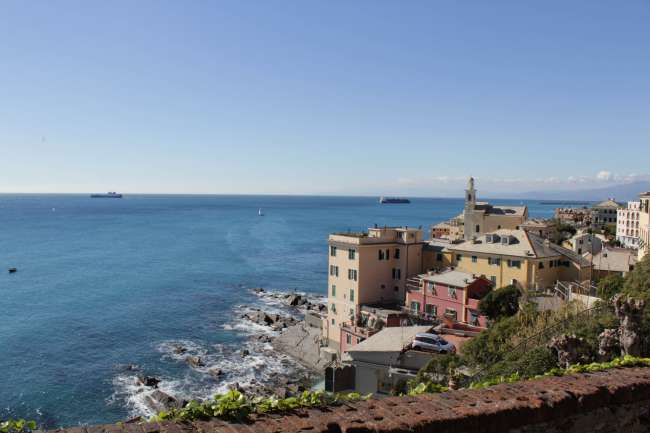
Bidaien txostenak Italia

